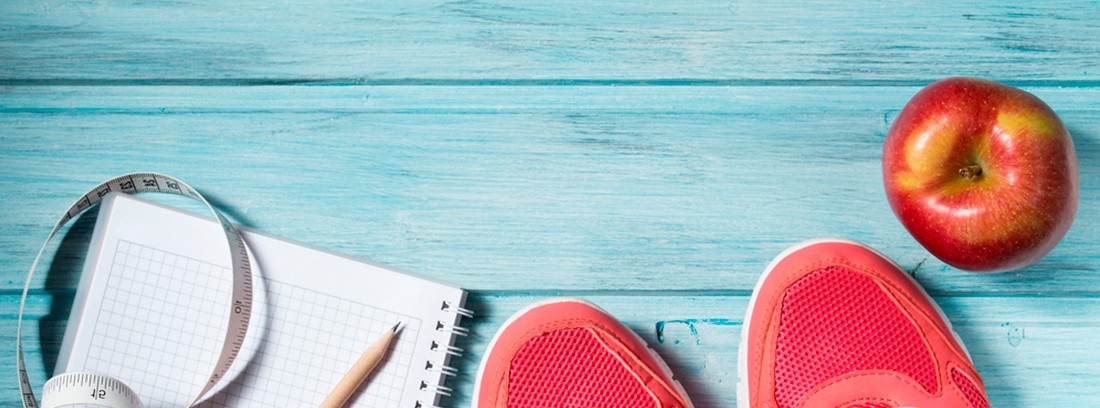Fruits for athletes, which ones and when

We know that the consumption of fruits for athletes is really necessary if we want to follow a healthy diet. So much so that the lack of consumption is related to an increased risk of suffering from heart disease and stroke, while, on the contrary, its regular consumption can help prevent cancer. In addition, they are an excellent source of vitamins and minerals, and provide a high content of fiber, antioxidants and water.
- Fruits rich in vitamin C such as kiwi, mango, citrus, etc. help fight free radicals that are generated after intense physical activity.
- Fruits with a high water content such as cantaloupe or watermelon can help prevent fatigue by preventing dehydration.
- Fruits can be an excellent source of sugars, so their consumption is very useful, among other things, to provide energy during training or testing.
Why fruits for athletes?
Free radicals: The practice of physical exercise generates an excess of that can cause cellular and muscular damage. Among other things, they worsen athletic performance as they can enhance muscle overload, accelerate fatigue or delay recovery. Antioxidants are responsible for counteracting the effects since they have the ability to "capture" free radicals avoiding their harmful action. In addition to its preventive role, the presence of antioxidants in the sports diet contributes to an early recovery from post-traumatic inflammatory processes and small injuries.
- Which?
Especially those fruits rich in carotenes or provitamin A, since the body is capable of transforming it into vitamin A, with great antioxidant power, we can find it in fruits such as: apricot, cherries, melon and peach. Also in fruits rich in vitamin C, we can find it in: kiwi, mango, pineapple, persimmon, guava, citrus, melon, strawberries or berries.
- When?
They can be taken at any time of the day. It is advisable to take at least one fruit rich in vitamin C a day, combining it with the rest of the fruits, but especially those athletes with heavy workloads to counteract free radicals.
Hydration: Dehydration is one of the most feared situations by athletes as it increases the use of glycogen reserves, accelerates the onset of fatigue and as a consequence decreased performance, can cause gastrointestinal problems, reduces urine production to maintain levels of ions, increases the heart rate, causes alterations in thermoregulation by reducing sweating and even reduces strength. They provide a large amount of water, so their consumption helps with adequate hydration.
- Which?
Fruits with a higher percentage of water. Exceeding 90% of water we find watermelon and some variety of melon. Apricot, orange, grapefruit, peach, pineapple, strawberries and plum contain more than 85% water.
- When?
It can be taken at any time of the day, but especially in hot hours or in moments of intense training where a lot of hydration is needed, such as in mountain races, by contributing to rehydration.
Sugars: Fruits can be an excellent source of sugars, so their consumption can be very useful to maintain stable blood glucose values, provide energy during training or sports events, replace the glycogen lost after training or an intense test and thus allow proper muscle recovery.
- Which?
It will not only depend on the amount of sugar contained in the different fruits, but also on the degree of maturation (greater degree of maturation, greater amount of sugar) and the type of Glycemic Index (GI).
The Glycemic Index measures the ability of food to raise blood glucose (blood glucose). That is, how long it takes for the body to convert sugars into glucose and pass it into the blood. This is compared to a reference standard (pure glucose). There are foods that assimilate glucose quickly, and they will be those with a high GI, and others that take longer to assimilate (have a lower GI).
- Fruits with high GI: banana, watermelon, melon, mango, kiwi, orange ...
- Low GI fruits: apple, pear, strawberry, grape, grapefruit ...
- When?
Fruits with a high Glycemic Index: after training or sports events, by having a faster assimilation, the sugar quickly in the blood helps to replace the glycogen stores.
Fruits with a lower Glycemic Index: it is advisable to eat them before training or testing, since having a slower assimilation they provide glucose gradually so that energy is provided constantly.
It is advisable to consume a minimum of three fruits for athletes a day, one of them must be rich in vitamin C, to help us maintain good health. Knowing the properties of fruits can help us to know how to choose the optimal fruit depending on the moment, but a varied consumption of fruits is recommended to take better advantage of the benefits they provide, and if they are fruits of proximity better, since they maintain their nutrients better. and, therefore, its benefits.
(Updated at Apr 14 / 2024)